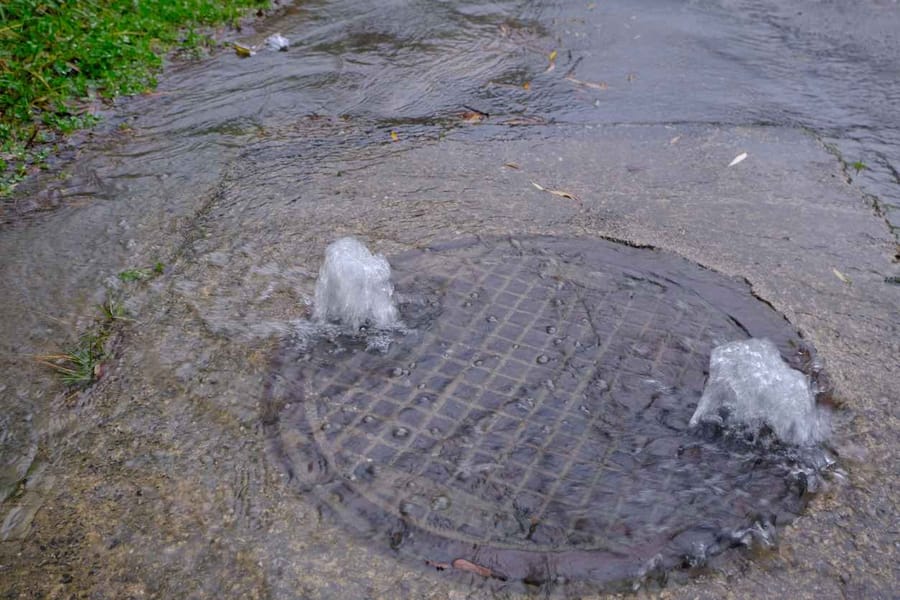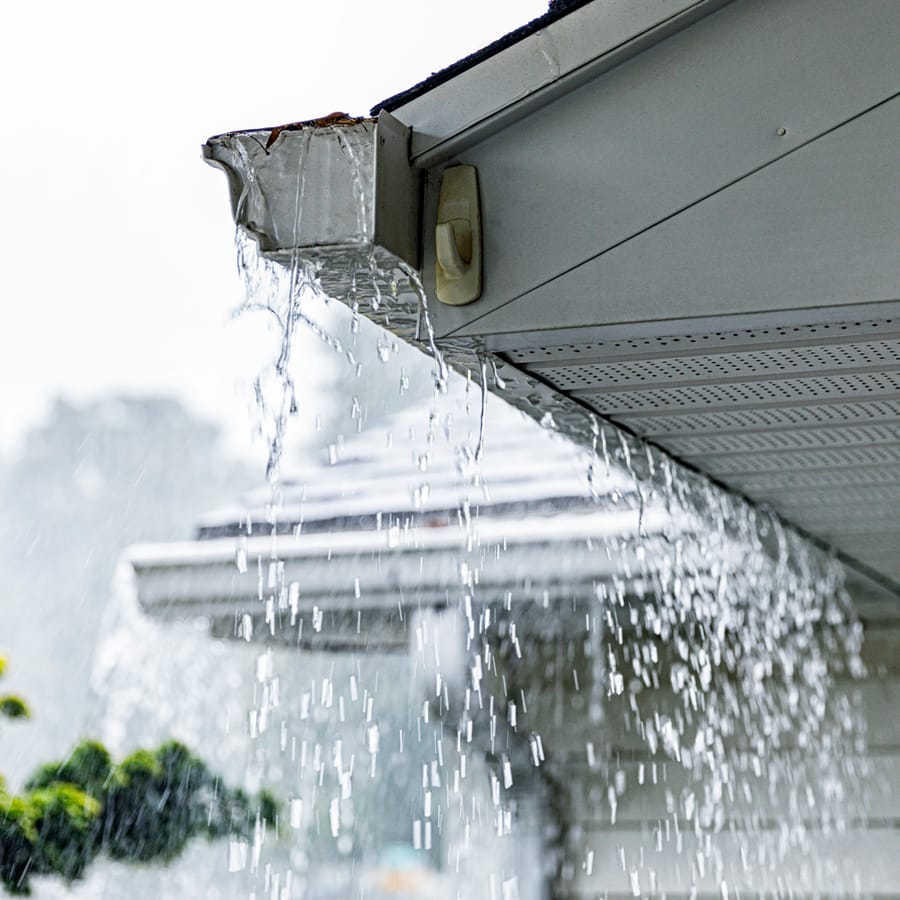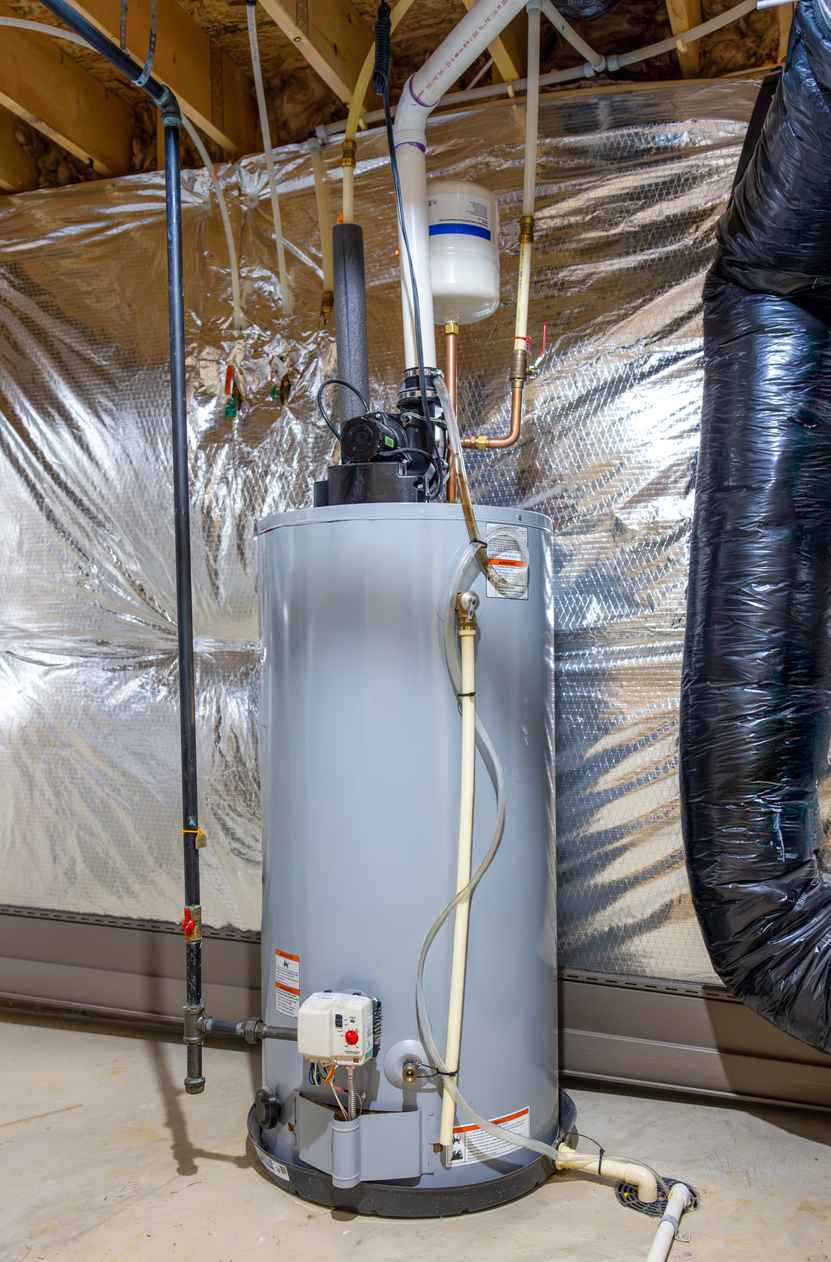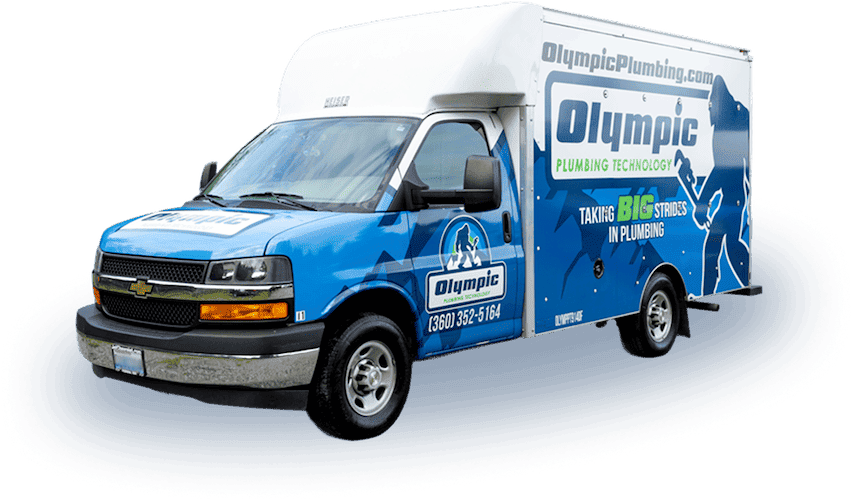Serving the Greater South Sound Area
Why Does My Toilet Gurgle After Heavy Rain? Drain Troubleshooting Guide

When a storm rolls through the Pacific Northwest, it is not uncommon for homeowners to hear strange noises coming from their plumbing. One of the most unsettling of these noises is a toilet that begins to gurgle, bubble, or burp after heavy rainfall. While it might seem harmless at first, gurgling is almost always a sign that your drain or sewer system is under stress.
Gurgling occurs when air becomes trapped in your plumbing system and is forced back up through the toilet. This typically means that either your home’s sewer line, vent system, or the municipal sewer has become overwhelmed by stormwater. In many cases, the gurgling is the first warning sign of a partial blockage, sewer backup, or vent issue that needs attention before it becomes a much bigger problem.
In this blog, you will learn why toilets gurgle after rain, what the most common causes are, how to tell whether the issue is inside your home or in the city’s sewer system, and what steps you can take to protect your home from sewer backups. With early troubleshooting and proper care, you can prevent storm-related plumbing issues and keep your drains flowing smoothly all year long.
How Heavy Rain Affects Your Plumbing System
Heavy rain can place significant stress on both private sewer lines and municipal drainage systems throughout the Pacific Northwest. When the ground becomes saturated and stormwater flows into sewer networks, pressure changes can affect the way wastewater moves through your home’s plumbing. These shifts often lead to gurgling sounds in toilets as air and water fight for space inside the pipes.
Saturated Soil Puts Pressure on Sewer Lines
When soil becomes heavily soaked during prolonged rainfall, it expands and puts pressure on underground sewer lines. Older clay or cast iron pipes are especially vulnerable to shifting soil and may develop cracks or misaligned joints. This creates opportunities for groundwater to enter the system or for sewage to flow more slowly, which can cause toilets to gurgle.
Stormwater Overloads Municipal Sewer Systems
In many cities throughout Washington and Oregon, stormwater flows directly into the same lines that handle wastewater. During heavy rainfall, these systems can become overloaded, causing downstream pressure changes. As the municipal sewer fills, air in your home’s plumbing system may burble upward, creating that familiar gurgling sound.
Backflow Pressure Creates Air Displacement
Sewer lines rely on consistent forward flow. During a storm, the increased pressure from water entering the system can slow or stop this flow temporarily. When wastewater struggles to move forward, pockets of air get trapped and pushed back toward your fixtures, often causing noise or bubbling in toilets.
Poor Ventilation Worsens the Effects of Stormwater
Your home’s plumbing vent system allows sewer gases and air pressure to escape. If the vent is partially blocked by leaves, ice, pests, or debris, pressure cannot escape properly during heavy rain. This restriction amplifies the air displacement inside your plumbing and increases the likelihood of toilet gurgling.
Tree Roots Expand During Wet Weather
Tree roots naturally grow toward moisture, and heavy rains can accelerate root expansion in the soil. Roots may enter sewer lines through tiny cracks or joints, partially blocking the flow and creating air disturbances that cause gurgling.
Main Causes of Toilet Gurgling After Heavy Rain
When your toilet gurgles after a storm, it is usually a sign that something is restricting the normal flow of wastewater or preventing air from venting properly. Below are the most common causes behind this issue, especially in the Pacific Northwest where heavy rainfall and dense tree root systems frequently affect sewer lines.
Backed Up Sewer Line
A partially or fully clogged sewer line is one of the most common reasons for toilet gurgling. When the pipe becomes blocked with debris, grease, wipes, or roots, water cannot drain as it should. Heavy rain adds extra pressure, causing trapped air to push upward and bubble through the toilet.
Blocked or Flooded Sewer Main in Your Neighborhood
During severe rainstorms, the municipal sewer system may become overloaded. When this happens, homes throughout the neighborhood can experience gurgling, slow drains, or even minor backflow. If multiple homes around you are experiencing similar issues, the problem may be coming from the city’s system rather than your own.
Clogged or Blocked Vent Stack
Your plumbing vent stack helps regulate air pressure inside your drain lines. When it becomes blocked by leaves, nests, or debris, air cannot escape properly. Instead, the pressure is forced out through your toilet. Heavy rain can worsen this problem by adding moisture and weight to existing blockages.
Partial Drain Line Obstructions
Even small obstructions in your drain line can cause significant pressure changes during storms. Common culprits include:
-
Accumulated debris
-
Feminine hygiene products
-
Excess toilet paper
-
Improperly flushed items
When the system is under stress from stormwater, these partial blockages become much more noticeable.
Tree Roots Infiltrating Sewer Pipes
Tree roots seek out moisture, especially during and after heavy rainfall. In older sewer systems with clay or cast iron pipes, roots can enter through joints, cracks, or weak points. These roots grow into the pipe and create blockages that lead to gurgling, slow drains, or full backups.
How to Tell If the Problem Is Inside Your Home or in the City Sewer
When your toilet gurgles after heavy rain, the first step in solving the issue is determining where the problem is coming from. It may be isolated to your home’s plumbing system, or it may be caused by an overwhelmed municipal sewer line. Knowing the difference helps you decide whether to call a plumber or contact your local utility department.
Signs the Problem Is Inside Your Home
If the issue is coming from your residential plumbing system, you will usually notice one or more of the following:
Multiple Fixtures Are Affected
If sinks, tubs, or other toilets begin to drain slowly or make bubbling noises, this typically points to a blockage in your home’s sewer line.
Gurgling Continues Even After the Rain Stops
If the noise persists long after the storm has passed, the cause is likely a clog, a venting problem, or tree root damage on your property.
Water Backing Up in Low Drains
Check your shower, floor drains, or basement drains. If water pools or backs up, this usually means the blockage is in your private sewer line.
You Have an Older Home With Original Sewer Pipes
Homes built with clay, cast iron, or Orangeburg pipes often develop cracks or root infiltration that worsen during rainy periods.
Signs the Problem Is Coming From the City Sewer System
Heavy rain can overwhelm municipal sewer networks, especially in neighborhoods with aging infrastructure. Signs the issue is on the city side include:
Neighbors Report the Same Symptoms
If others on your street notice gurgling, slow drains, or minor backups, the cause is likely a municipal overload rather than a problem in your home.
The Problem Only Happens During or Immediately After Rain
If your drains work normally during dry weather but gurgle only when it storms, this often indicates that the city’s sewer main is temporarily flooded.
You Hear Gurgling Without Any Other Signs of Blockage
If the toilet bubbles but water drains normally elsewhere, it may simply be air displacement caused by pressure changes in the municipal system, not a clog on your property.
Safe Troubleshooting Steps Homeowners Can Try
While some causes of toilet gurgling require professional equipment and expertise, there are a few safe and simple checks homeowners can perform. These steps can help you understand the severity of the issue and determine whether immediate plumbing service is necessary.
Check Other Fixtures for Slow Drains or Noises
Run water in sinks or tubs and listen closely for bubbling or gurgling. If multiple fixtures show symptoms, this typically indicates a blockage or pressure issue deeper in your home’s sewer line.
Look for Water Backup in Low Drains
Inspect any lower drains in your home, such as basement drains, floor drains, or showers on the lowest level. Standing water or slow drainage suggests a partial or developing sewer line blockage that can worsen quickly after a storm.
Examine the Outdoor Cleanout if You Have One
Many homes have a cleanout located outside, usually in the front yard. Remove the cap carefully and check for:
-
Standing water in the pipe
-
Overflowing sewage
-
Signs of heavy debris
If you see water rising or spilling out, stop immediately and call a plumber, as this indicates a blockage or sewer backup.
Confirm the Toilet Is Not Clogged Internally
Although heavy rain usually points to a sewer or vent issue, it is still worth checking the toilet itself. Ensure nothing is lodged in the trap and that the toilet flushes normally during dry weather.
Avoid Using Chemical Drain Cleaners
Chemical cleaners are dangerous for sewer lines, especially during storm-related blockages. They can:
-
Damage older pipes
-
React unpredictably with standing water
-
Fail to dissolve roots or heavy debris
-
Create health hazards during backups
Professional mechanical or hydro jet cleaning is a far safer and more effective solution.
Limit Water Usage Until the Issue Is Identified
If you notice any signs of sewer stress, reduce your household water usage. Avoid doing laundry, long showers, or multiple toilet flushes. This prevents pressure buildup and reduces the risk of a full sewer backup.
Long-Term Solutions to Prevent Gurgling After Rain
While occasional toilet gurgling may happen during severe storms, recurring issues often indicate a deeper problem that needs long-term solutions. Preventative maintenance and strategic upgrades can protect your home from storm-related plumbing issues and reduce the risk of sewer backups.
Professional Hydro Jetting for Thorough Drain Cleaning
Hydro jetting uses high-pressure water to remove years of buildup, including grease, scale, debris, and early root intrusion. This method restores your sewer line to near-original flow capacity and is far more effective than traditional drain cleaning.
Hydro jetting is especially beneficial in areas with heavy rainfall, since a clean line can handle sudden surges of stormwater more effectively.
Sewer Camera Inspections to Identify Hidden Problems
A sewer camera inspection reveals the exact cause of recurring gurgling and drainage issues. With real-time video, technicians can locate:
-
Cracked pipes
-
Root infiltration
-
Sagging sewer lines
-
Partial or full obstructions
-
Collapsed sections
This allows for targeted repairs rather than guesswork.
Root Treatment or Pipe Lining for Long-Lasting Repairs
If tree roots are the cause, long-term solutions include:
-
Mechanical root removal
-
Biodegradable root inhibitors
-
Trenchless pipe lining to seal cracks and prevent roots from returning
Pipe lining reinforces the inside of your sewer line and protects it from future intrusion.
Improving Vent Stack Airflow
A blocked or undersized vent stack can worsen pressure issues during storms. Solutions include:
-
Clearing debris
-
Removing nests or obstructions
-
Upgrading vent size for older homes
-
Repairing cracked or damaged vent piping
Proper venting helps prevent gurgling by allowing air to move freely through the system.
Installing a Backwater Valve for Flood Protection
Backwater valves are one of the best defenses against sewer backups during heavy rain. These devices allow wastewater to flow out of your home but prevent contaminated water from flowing back in during sewer main overloads.
They are especially helpful in:
-
Older neighborhoods
-
Low-lying properties
-
Areas with known municipal sewer flooding issues
Routine Plumbing Maintenance
Scheduling routine drain cleaning and inspections helps catch small issues before storms turn them into major problems. Regular maintenance is one of the most affordable and effective long-term solutions.
Protect Your Home From Storm-Related Plumbing Problems
Toilet gurgling after heavy rain is more than an annoyance. It is often the first warning sign that your sewer line, vent system, or the municipal sewer network is under stress. Whether the cause is a partial blockage, overwhelmed city sewer, root intrusion, or vent obstruction, addressing the problem early helps prevent costly backups and water damage.
With heavy rainfall and dense tree root systems throughout the Pacific Northwest, storm-related plumbing issues are surprisingly common. The good news is that most gurgling problems are completely fixable with the right diagnosis and professional care.
If your toilet gurgles during or after storms, or if you notice slow drains and bubbling in other fixtures, contact Olympic Plumbing Technology. Our experienced team has the tools, training, and local expertise to identify the exact cause and restore your plumbing system to safe, reliable operation.








